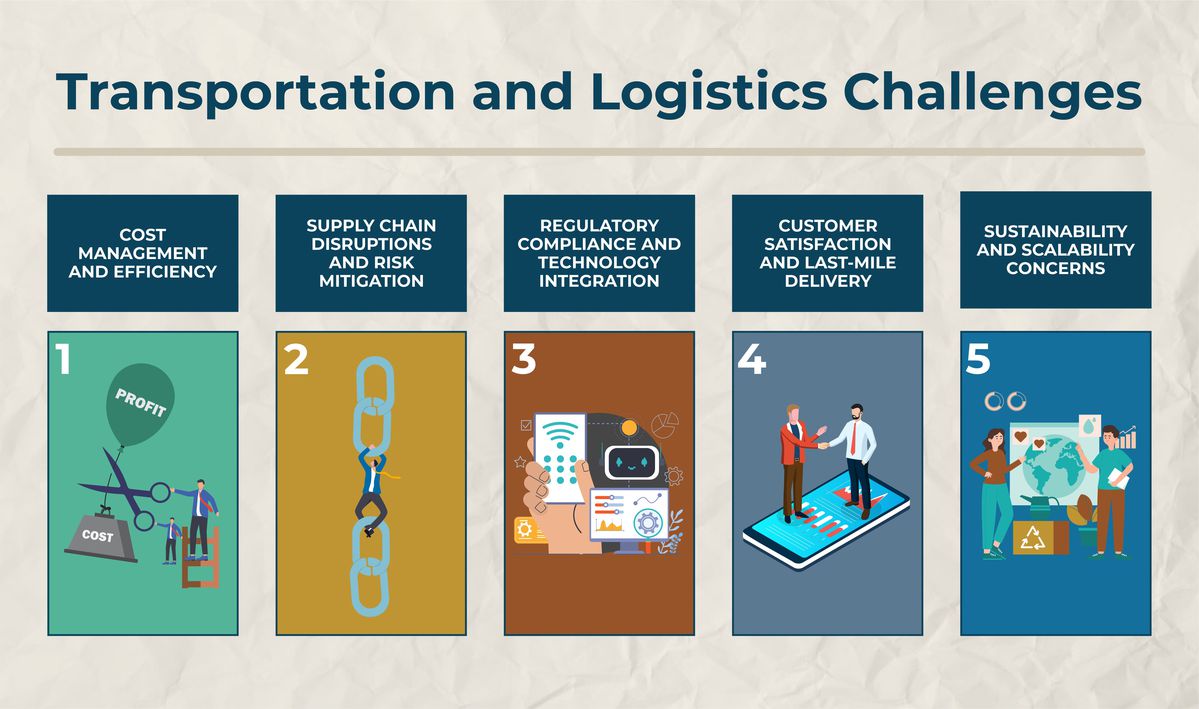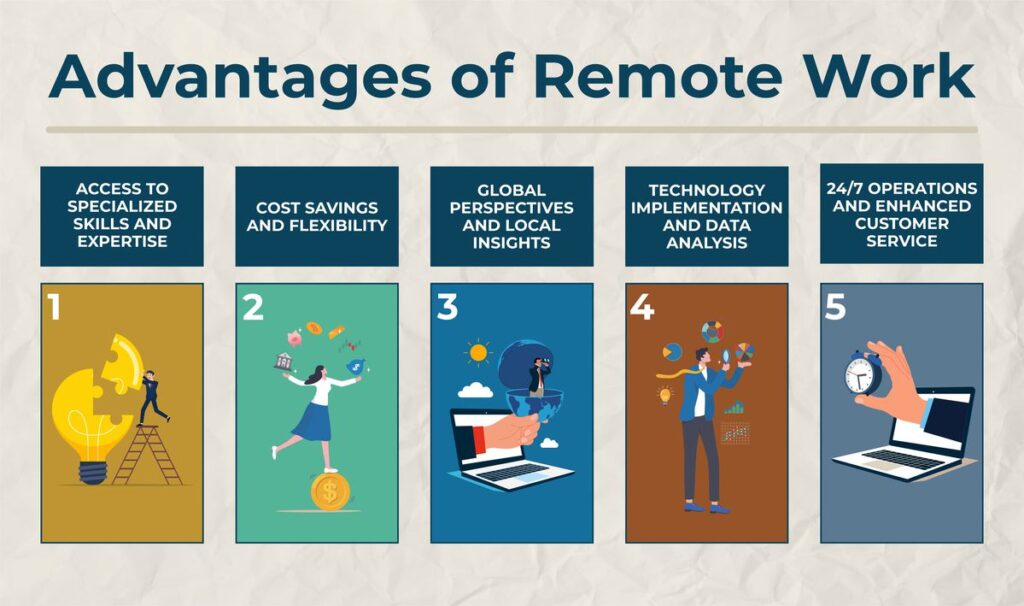
Logistics is an overlooked industry until something goes wrong. Transportation and logistics are the lifeblood of the global economy, ensuring the smooth movement of goods and supplies across local and international borders. However, the industry is undergoing a significant transformation, driven by the impact of the COVID-19 pandemic, the rise of e-commerce, the need for digitalization, rising fuel costs, technology implementation, and supply chain disruptions. As companies adapt to these changes, the demand for skilled talent increases, leading to a scarcity of candidates for various job roles. To address this challenge, companies are exploring remote work in the Philippines and iSWerk.
The Growing Need for Remote Talent in Transportation and Logistics
The incredible acceleration of e-commerce in both the business-to-business (B2B) and business-to-consumer (B2C) fields has disrupted the whole supply chain network, following the remarkable growth in the logistics sector.
As the demand for e-commerce and efficient supply chain management increases, the logistics industry needs remote professionals with expertise in areas such as supply chain management, transportation, and warehouse management.
Logistics companies such as Overhaul, Mothership, CompanyCam, Leaf Logistics, Bringg, Flexport, and DAT Freight & Analytics are adopting remote work to access a wider talent pool and enhance productivity.
Remote staffing can help businesses access skilled professionals who may not be available locally, expanding their talent pool and ensuring that their logistics needs are met.
Identifying Key Transportation and Logistics Challenges
Let’s discuss the pressing concerns in the transportation and logistics industry and discuss how remote teams can help address each issue.

Cost Management and Efficiency
Businesses want to ensure they don’t spend too much money moving things around. Meticulous planning of transportation modes and routes is crucial to maintain optimal operational efficiency.
By transitioning to remote work, companies can save a significant amount of money on overhead costs associated with physical office spaces, such as rent, utilities, and maintenance, which can amount to over $11,000 per employee per year.
Additionally, remote work can lead to increased productivity and reduced stress, resulting in more motivated and efficient employees. Companies can also save on real estate expenses, utilities, maintenance, and office supplies, and tap into a global talent pool, potentially lowering labor costs.
Supply Chain Disruptions and Risk Mitigation
Unexpected events such as natural disasters or logistical challenges can interrupt supply systems. To maintain ongoing operations, companies work on measures to anticipate and counteract these disturbances.
Businesses can adapt to supply chain disruptions by learning how to manage remote teams. This allows for flexibility in operations and can help maintain business continuity, even in the face of logistical challenges or natural disasters.
Regulatory Compliance and Technology Integration
Compliance with legal and regulatory structures, particularly across international borders, is critical. Tracking shipments, maintaining compliance, and aiding seamless operations are all aided by advanced technological integration.
By adopting effective communication, training sessions, and regular check-ins, remote teams can increase regulatory compliance and technological integration. Advanced solutions such as Microsoft Purview Communication Compliance and Proofpoint Intelligent Compliance can aid with compliance monitoring. Employers should also revise contracts to guarantee compliance with telework legislation and tax nexus considerations.
Customer Satisfaction and Last-Mile Delivery
The final leg of delivery, known as last-mile delivery, is critical to customer satisfaction. Companies prioritize quick and secure delivery to the end user.
Remote teams can improve customer satisfaction and last-mile delivery by utilizing technology and smart methods. Real-time tracking, route optimization, and delivery status updates all contribute to a better customer experience.
AI and machine learning can optimize routes and manage resources, while real-time data can predict potential issues. Focusing on the driver’s well-being can improve customer experiences. Using these strategies, remote workers may provide a seamless and efficient experience for both consumers and delivery partners.
Sustainability and Scalability Concerns
Finding the perfect balance between growth and being environmentally responsible is a must. Businesses strive for environmentally friendly transportation strategies and create scalable systems to handle growing demand efficiently.
Remote teams can simultaneously tackle sustainability and scalability challenges by implementing eco-friendly practices and optimizing processes. Businesses gain from remote work by lowering overhead costs and making significant strides toward sustainability. Moreover, employing remote workers can increase diversity, productivity, and growth within the supply chain industry, addressing scalability concerns.
Advantages of Remote Staffing
The advantages of remote workers in handling transportation concerns are multifaceted and can significantly impact the transportation and logistics industry. Here’s an in-depth exploration of these benefits.

Access to Specialized Skills and Expertise
Individuals are no longer restricted by geography through remote staffing, allowing businesses to tap into a larger talent pool and recruit the best available employees.
Cost Savings and Flexibility
Reduced overheads and flexible workforce models lead to significant cost reductions, allowing companies to allocate resources more efficiently.
Global Perspectives and Local Insights
Remote teams provide a distinct blend of global and local insights, critical for understanding diverse markets and optimizing transportation strategies.
Technology Implementation and Data Analysis
Data-driven insights are used by remote teams skilled at integrating technology to identify the best approaches, streamline operations, and increase efficiency.
24/7 Operations and Enhanced Customer Service
With teams across different time zones, the remote workforce ensures round-the-clock operations, leading to enhanced customer service and satisfaction.
List of Remote Jobs
Here are several jobs in the logistics and transportation industry that can be performed remotely.
- Inventory Manager
- Transportation Coordinator
- Supply Chain Manager
- Logistics Manager
- Procurement Specialist
- International Freight Forwarder
- Customs Broker
- Data Analyst
- Data Entry Specialist
- Customer Service Representative
- Sales Representative
- Project Manager
- Researcher
- Writer
- Graphic Designer
These remote jobs offer flexibility and allow professionals to work from home, reducing commuting time and, expenses and, providing a better work-life balance.
The Ultimate Remote Work Hub: The Philippines

English is widely used as a business language in the Philippines, which makes culture and language barriers much less of an issue when leveraging remote work.
Legal documents, business contacts, and educational materials are mostly written in English. This makes it easier for many areas, from government to business, to work together smoothly.
Also, remote work in the Philippines has the potential to expand job options outside of big cities like Manila, which can help smaller towns’ economies grow and become more diverse. This change in strategy supports growth for everyone, thanks to the amazing skills of Filipino workers in working from home, which leads to overall socioeconomic progress across the country.
Empower Your Business Today with iSWerk
In the transportation and logistics industry, iSupport Worldwide’s (iSWerk) revolutionary remote workforce solutions provide plenty of growth opportunities.
Businesses may handle difficulties, minimize risks, and achieve operational excellence while setting the way for long-term success by integrating the expertise of remote staff. With iSWerk, you can capitalize on the power of remote teams to drive the future of transportation operations.
Conquer transportation challenges with confidence!
Get a NO OBLIGATION Consultation with iSWerk today to start your transformative journey.

Comments
Post a Comment